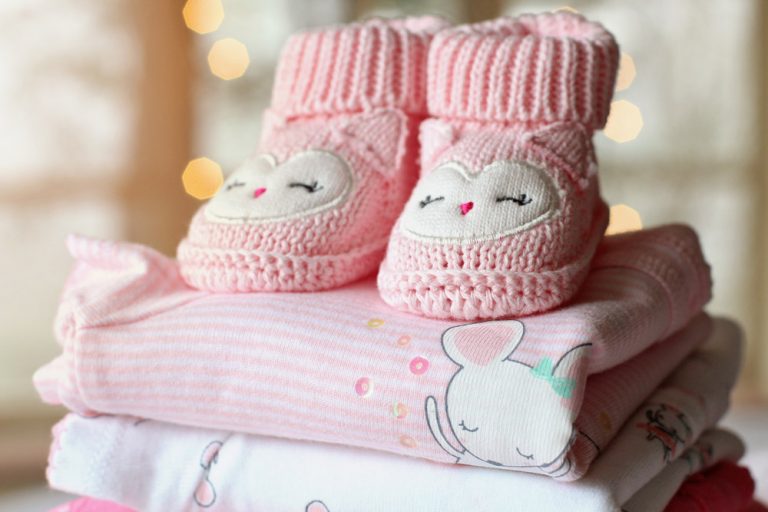Sleep and mental health often go hand in hand, a bad night’s sleep could disrupt your mood, weeks and months of night feeds with poor sleep can really take its toll on a parent’s mental health.
Sleep is as important to our health as eating, drinking and breathing. It allows our bodies to repair and maintain basic, normal brain functions. Sleep can also boost milk supply when breastfeeding, boost endorphins, help a speedier recovery after birth and help you cope with the work load of becoming a new parent.
For your baby? sleep increases growth and sets your baby up for positive long term sleep associations and habits. A baby doesn’t always need to be feeding frequently through the night to increase growth.
Here are 5 of my 12 steps to 12 Hours Sleep as part of my 7pm to 7am Sleeping Baby Routine plan.
Before I get started these next two points are critical:
- Recognising the difference between the newborn stage and the baby stage.
- Apply a different approach to the night and day feeding and routine.
In This Article
1. Focus On Your Baby’s Day Time Routine
This will have a direct result on your baby’s sleep. Eat, Play, Sleep, Repeat! Active larger feeds and structured awake times by day is essential for overnight sleep, with baby-led, shorter snack like feeds at night – with minimal to no stimulation. Coming out of the newborn stage from month 3-4 your baby has learned sleep behaviour due to the pattern of the routine during the newborn stage. Ensure your baby is getting most or all required food intake for a 24 hour period during daylight hours. During the newborn stage this is done by gradually increasing milk intake on day feeds, then capping and reducing milk intake during the night.
2. Baby Sleep Position and Environment
Perfect room temperature and for the newborn stage, a swaddled and tucked-in position.
The perfect room temperature, so your baby doesn’t get too hot or cold overnight is 19 – 22 degrees. Parents tends to focus on overheating, which often results in babies left exposed and not warm enough to sleep. Make sure you have a thermometer in the bedroom so it’s not down to guess work. Positive sleep positions from birth will also encourage self-settling. A newborn responds well to feeling secure, a swaddle and tucked-in to sleep position makes a newborn feel cuddled and stops the startle reflex from waking them up unnecessarily. Create a positive sleep environment (with ideally their own personal space), where they can sleep undisturbed.
3. A Newborn’s World Is Centred Around Feeds And Digestion
Newborn’s are unable to self-burp for up to 12 weeks and need regular burping, more frequently and effectively than commonly thought and advised. The more air that comes out during and after feeds the more space for milk intake (larger feeds), which results in a more settled baby, between feeds and then overnight. Eating a wind forming free diet during the newborn stage whilst breastfeeding can also make a difference to your newborns digestive comfort and sleep. Less gas = more room for food = longer stretches of sleep = happy and rested mummy and baby!
4. Introduce A Split Feed Before Bed To Combat Daily Breast Milk Depletion Towards The End Of The Day.
Breast, bath, bottle, bed. The split feed before bed ensures the last feed of the day is the biggest of all the day feeds. When breastfeeding your milk supply depletes throughout the day, regardless of milk supply. Supplementing with a bottle for the last day feed, before putting them to bed for the night combats this issue.
5. Fed Is Best Not Breast Is Best For Sleep
No baby will sleep well if left hungry! Increase and understand personal milk supply and flow. A baby won’t sleep if they’re not getting enough food during the day. Milk making hormones are at their peak at night, because of sleep. Frequent night waking can actually reduce your supply. The more restful nights sleep, the better the milk supply will be. Especially if you are making up for lost night stimulation, by expressing during the day, as part of my breastfeeding routine. Expressing at the right time can increase milk supply, which in-turn increases milk intake, which then increases length and quantity of sleep.
Also, cap the quantity of milk intake and the length of time taken for overnight feeds, making sure all gradual milk intake is during daylight hours. For your full routine and sleep plan, grab a copy of my book 7pm to 7am Sleeping Baby Routine. The no-cry plan to help your baby sleep through the night.
Written by Charmian Mead who is also a Baby Sleep Consultant offering virtual consultancy as well as home visits.











